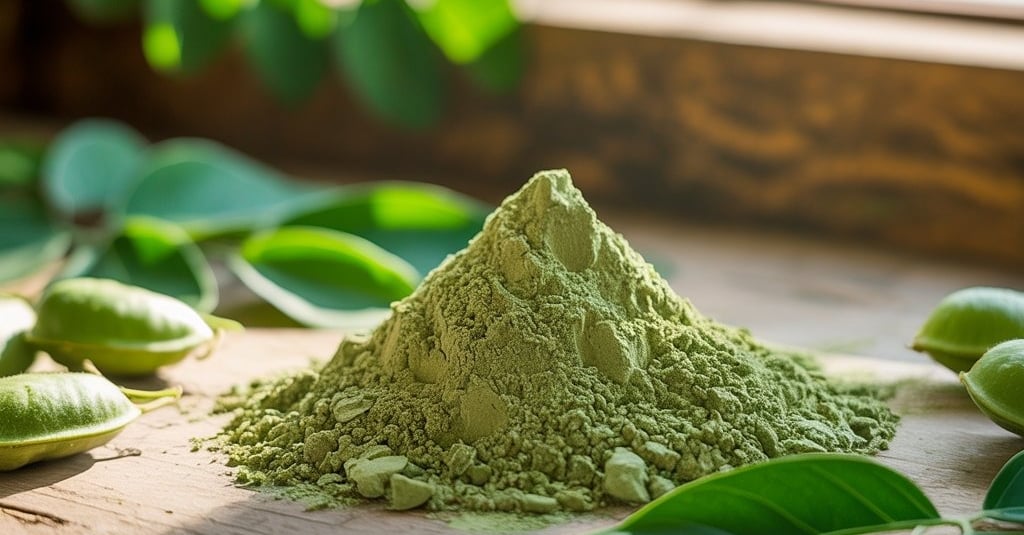Unlock the Power of Moringa: Nature's Multivitamin "moringa recipes"
Discover the incredible benefits of moringa, nature's multivitamin in a spoon. Explore delicious moringa recipes, effective moringa supplements, and versatile moringa powder to enhance your health and wellness.
7/16/20254 min read


What is Moringa and Why is it Called Nature's Multivitamin?
Moringa oleifera, an herbaceous plant commonly referred to simply as Moringa, is celebrated for its impressive array of health benefits and nutritional composition. Native to the Indian subcontinent, Moringa has emerged from its traditional roots to gain international recognition as a superfood. The cultivation of Moringa dates back thousands of years, where it has been utilized in various cultures for its medicinal properties and dietary supplementation. Its versatility makes it a formidable contender in today's health-conscious world, where it is often dubbed "nature's multivitamin."
The remarkable nutrient profile of Moringa is central to its commendation as a multivitamin. This plant is a rich source of vitamins A, C, and E, as well as essential minerals such as calcium, potassium, and iron. Additionally, Moringa leaves contain significant levels of antioxidants, anti-inflammatory compounds, and essential amino acids, making them an excellent dietary supplement for individuals seeking enhanced nutrition. These characteristics provide various health benefits, including boosting immunity, supporting metabolic functions, and promoting skin health.
Moringa can be consumed in various forms, including dried powder, capsules, and tea. The leaves are primarily used for their concentrated nutrients, while the pods and seeds also offer distinct health advantages. Moringa pods are rich in vitamins and can be cooked like vegetables, while the seeds are known for their oil and high antioxidant content. This diversity in usage further solidifies Moringa's reputation as a multifunctional superfood, suitable for various dietary needs. Its holistic benefits—ranging from nutritional supplementation to potential therapeutic effects—contribute to its esteemed title as nature's multivitamin.
Nutritional Benefits of Moringa: A Closer Look
Moringa, often referred to as nature's multivitamin, is rich in essential nutrients that contribute significantly to overall health. The leaves of the Moringa tree are particularly nutrient-dense, containing a variety of vitamins, minerals, and proteins. One of the most notable components is Vitamin A, which is crucial for maintaining healthy vision, skin, and immune function. A mere tablespoon of Moringa leaves can provide approximately four times the amount of Vitamin A found in carrots, highlighting its potency.
In addition to Vitamin A, Moringa leaves are an excellent source of Vitamin C, known for its antioxidant properties and its role in supporting the immune system. This vitamin aids in the absorption of iron, a mineral also abundant in Moringa. Iron is essential for the formation of hemoglobin in red blood cells, making Moringa a beneficial supplement for individuals at risk of anemia or those looking to enhance their energy levels. Furthermore, Moringa is noteworthy for its calcium content, which is vital for strong bones and teeth, and potassium, which helps regulate blood pressure and supports cardiovascular health.
The protein content in Moringa is another significant benefit, as it contains all nine essential amino acids necessary for human health. For those following vegetarian or vegan diets, Moringa serves as an ideal plant-based protein source. Research has shown that individuals incorporating Moringa into their meals report enhanced energy and vitality, which can contribute to improved daily productivity and well-being.
From smoothies to salads, the versatility of Moringa allows for easy inclusion in various recipes. Adding this superfood to your daily diet not only enriches your nutrient intake but also promotes better health outcomes, supported by numerous studies indicating its effectiveness in improving immunological responses and overall vitality.
How to Incorporate Moringa into Your Diet
Incorporating Moringa into your daily meals can be a delightful way to reap its numerous health benefits. Moringa is available in various forms, including powder, capsules, and fresh leaves, making it versatile for different dietary preferences. For those seeking a smooth entry into Moringa consumption, starting with Moringa powder is often recommended. It can be easily added to smoothies, providing both nutritional benefits and a mild flavor that complements various fruits.
To make a nutritious Moringa smoothie, blend one banana, a cup of spinach, a tablespoon of Moringa powder, and a cup of almond milk. This combination not only enhances the taste but also boosts your intake of vitamins and minerals. Additionally, Moringa powder can be stirred into yogurt or oatmeal for an energizing breakfast.
For lunch or dinner, consider adding fresh Moringa leaves to salads. The leaves can be mixed with other greens like kale or arugula, and topped with seasonal vegetables, nuts, and a light dressing. Moringa can also be integrated into soups. Simply add a handful of chopped Moringa leaves toward the end of cooking to preserve their nutritional content.
Tea lovers can infuse Moringa powder or fresh leaves in hot water, creating a refreshing herbal tea. This can be a soothing alternative, especially in the evening. When considering dosage, it is generally recommended to start with a small amount, such as half a teaspoon of Moringa powder or a few fresh leaves, and gradually increase as your body adapts. Consult with a healthcare professional to determine the best dosage for you, particularly if you are new to Moringa. Fresh Moringa leaves can often be found at health food stores or local farmers' markets, while the powdered form is readily available online and in retail stores.
Potential Side Effects and Considerations
Moringa, often lauded as nature's multivitamin, is generally recognized for its nutritional benefits and health-promoting properties. However, the consumption of Moringa should be approached with caution, especially in specific populations. Some potential side effects may arise, warranting careful consideration. For instance, Moringa leaves and pods are safe for most individuals, but the roots and flowers contain compounds that can be harmful if consumed in excess. Pregnant individuals should particularly exercise caution, as Moringa root may have uterine stimulant properties that could potentially lead to miscarriage.
Moreover, individuals who are currently taking medications need to consult their healthcare providers prior to incorporating Moringa into their diet. Moringa has been noted to interact with various medications, including those for diabetes and hypertension. Because Moringa may lower blood sugar levels, individuals on diabetic medications should monitor their glucose more frequently and adjust their doses as necessary. Similarly, for those taking blood pressure medications, the addition of Moringa could amplify the effects, calling for a professional evaluation.
In patients with existing health conditions, such as liver diseases or gastrointestinal disorders, the introduction of Moringa should be done with great care. Although Moringa is rich in anti-inflammatory properties, some individuals may experience gastrointestinal disturbances, such as diarrhea or stomach cramps, when first consuming it. Therefore, starting with lower doses is advisable to assess individual tolerance. It is always prudent to engage in an open dialogue with healthcare practitioners, ensuring a thorough understanding of both the benefits and precautions necessary for safe consumption of Moringa.
Wellness
Experience vitality with our natural herbal solutions—crafted to boost immunity, detoxify, and energize. Pure, plant-based wellness for everyday health, rooted in Ayurvedic tradition.
Contact us
support@mleaf.co.in
+91-9911382286
© 2025. All rights reserved.
